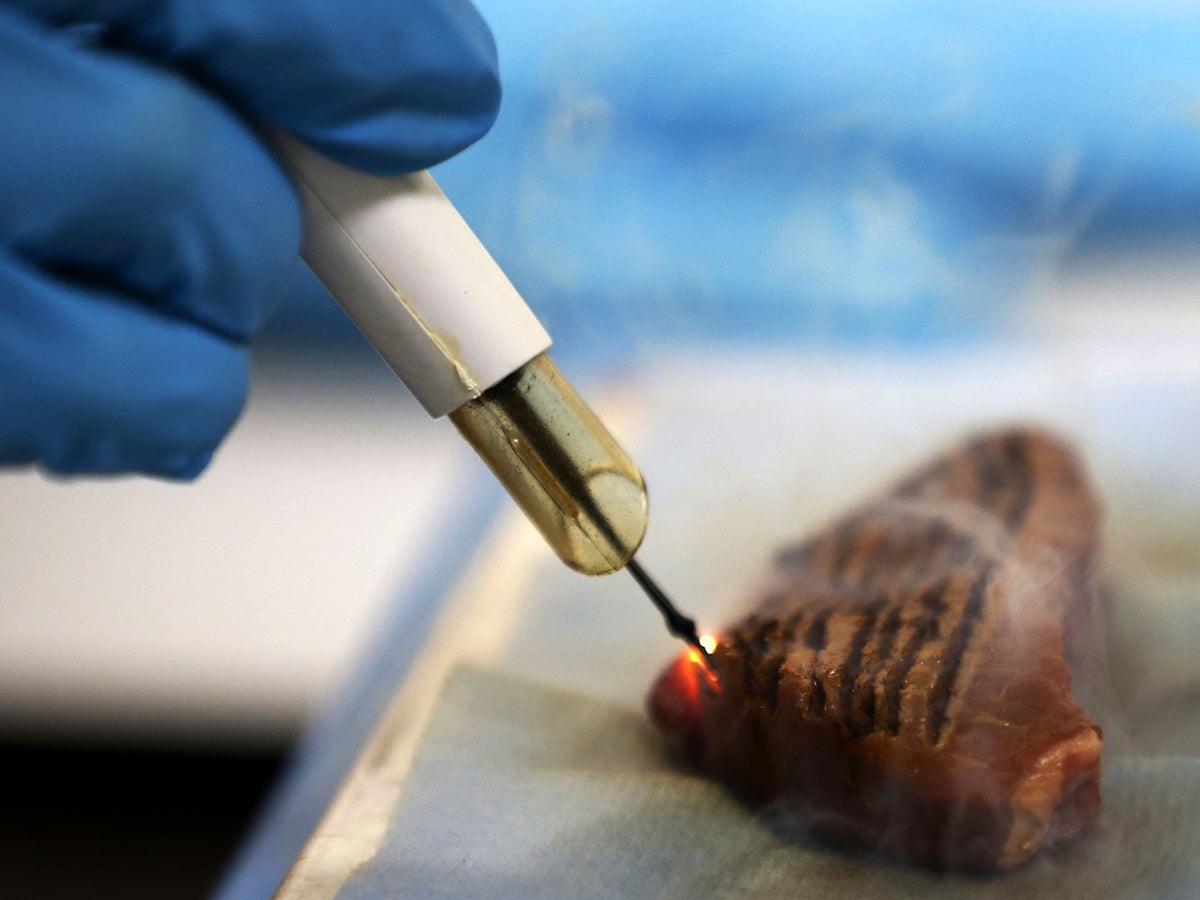
A surgical smart knife that can detect when it cuts through cancerous tissue has been shown by scientists to “reliably” diagnose womb cancer “within seconds”.
The research, published in the journal Cancers, is expected to minimise the current delays for women when they await diagnosis for womb cancer following the analysis of their tissue samples in labs.
The device, iKnife, has been shown in previous studies to be a revolutionary tool in the diagnosis of different cancers that can indicate exactly which tissue to remove from a patient, reducing surgery time and the need for repeated operations.
Previous studies have shown that the intelligent “smart” knife – a type of electrosurgical knife used to cut and cauterise blood vessels – can correctly identify different tissue types including lung, colon, and liver.
Research has demonstrated that the iKnife works by sucking the smoke during cauterisation into a mass spectrometer – a device that reads the chemical signatures and indicates whether the cut tissue is cancerous or healthy.
“The iKnife is an emerging tool which uses standard electrosurgical methods to generate surgical aerosols that are then interrogated by a mass spectrometer to provide real-time tissue signatures,” scientists, including those from Imperial College London, explained in the study.
In the new research, scientists sought to determine whether the iKnife can correctly identify endometrial cancer from biopsy samples.
Endometrial cancer is a common gynaecological cancer with over 120,000 new cases diagnosed per year in the European Union alone, scientists say.
Researchers assessed about 150 endometrial samples in this study and found that the smart knife “reliably” diagnosed endometrial cancer in seconds, with a diagnostic accuracy of about 90 per cent.
“These results are highly encouraging and suggest that the iKnife could be used in the clinic to provide a point of care diagnosis,” scientists noted, adding that the surgical tool can pave the way for “new diagnostic pathways”.
Until now, researchers say, tissue sample analysis for diagnosis of womb cancer may “take up to two weeks” with delays in treatment and definitive surgery shown to negatively impact survival chances.
With the iKnife – which has been shown to “accurately discriminate” between normal and cancerous tissue across various tumours, including in colon, breast, cervical and ovarian tissues – researchers say a rapid point of care diagnosis method for endometrial cancer can be developed.
They say the smart knife technology “has the potential to expedite the patient pathway, providing point-of-care diagnosis for women with suspected endometrial cancer.”
“It accurately distinguishes normal from malignant endometrial tissue based on differences in their lipidomic profiles. Further larger studies are needed to validate this technique and improve its diagnostic performance,” scientists added.







